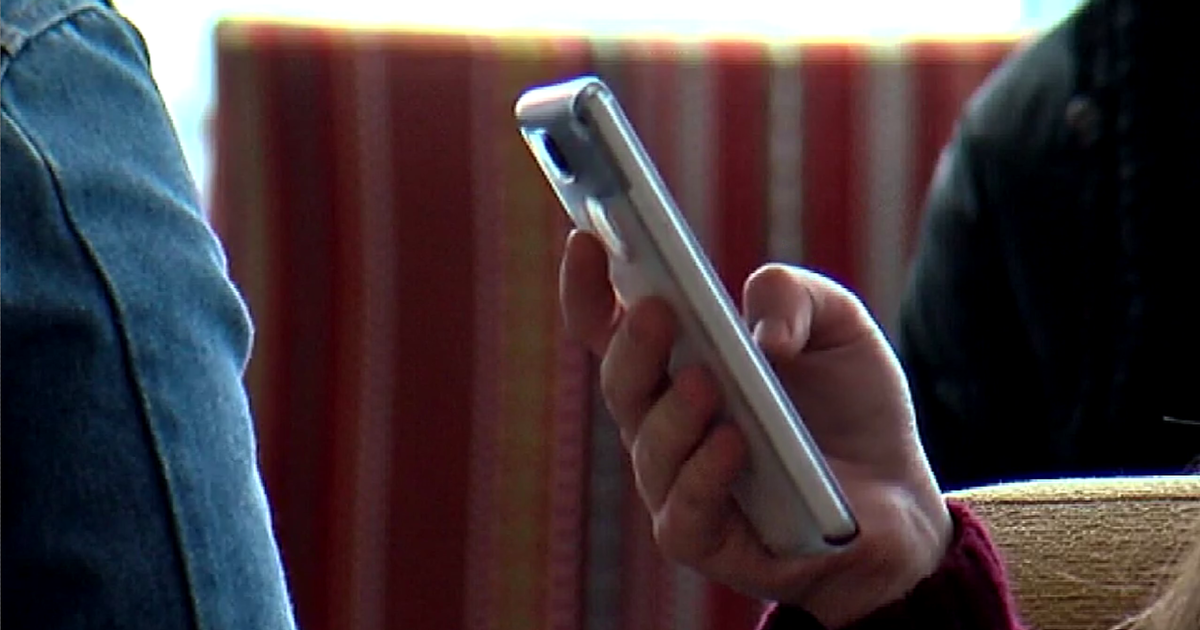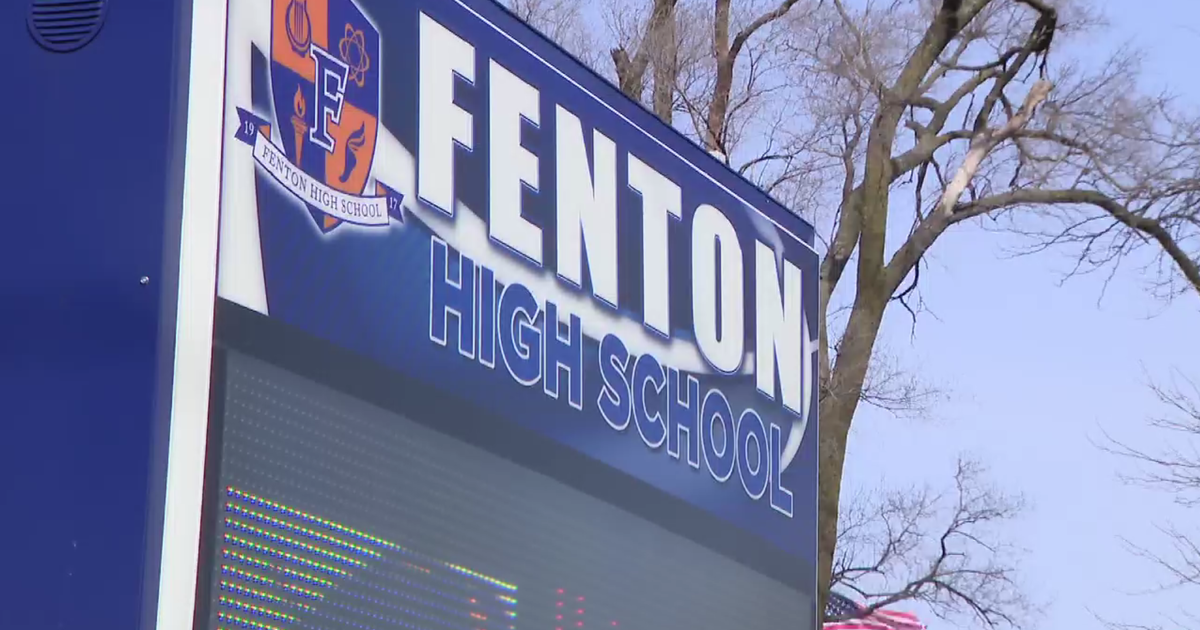Quinn Wants To Borrow Billions, Consolidate School Districts
Updated 02/16/11 - 4:47 p.m.
SPRINGFIELD, Ill. (WBBM) -- With an income tax hike already in effect, Gov. Pat Quinn has presented a budget plan that would not raise any new taxes or fees, but would still cut state aide to the poor, reduce a number of services and borrow billions of dollars to pay overdue bills.
The governor's plan would spare education any major spending cuts, but Quinn said he wants to reduce the number of school districts in Illinois and make school districts pay a larger share of the cost of school buses.
LISTEN: Newsradio 780 Political Editor Craig Dellimore reports
Podcast
"Our fiscal reality demands consolidation," Quinn said, predicting the move could save $100 million a year.
Illinois currently has 868 school districts and previous consolidation efforts have failed. Quinn also proposed cutting $14 million the state spends on 45 regional education offices. He said the State Board of Education can take up their tasks.
And he said the state should reduce spending on bus transportation for students by $95 million. He said local school districts should shoulder that cost.
At the same time, Quinn said he wanted to increase spending on state-funded college scholarships for the needy through the Monetary Assistance Program -- also known as MAP grants.
"We don't want any state to out-educate Illinois," Quinn said. "We must ensure that we have everyone acquire the skills demanded by the 21st century workplace."
While the governor would increase spending on MAP grants, he said the state should eliminate its legislative scholarship program, which allows state lawmakers to hand out scholarships to people in their districts. The program has been under fire for years, as many lawmakers hand out the scholarships to friends, family members and political donors.
"College scholarships that are paid for by the state of Illinois should only go to those who have true financial need for them," Quinn said.
The governor also proposed borrowing $8.7 billion to pay overdue bills and begin paying state vendors promptly again.
"We have $8.7 billion in unpaid overdue bills. We need to restructure our debt," Quinn said. "Currently, Illinois pays its bills … six to eight months behind schedule. We force our universities, our service agencies, our companies doing business with the state to bear the burden of slow pay."
Quinn said late payment to public transportation agencies forces them to pay more to buy new equipment and, as a result, hurts people who rely on public transit to get to work.
Quinn also said "vendors are not bidding competitively for our state business" due to late payments. He said bids for state work are often 6 to 10 percent higher than normal because businesses expect long delays in payment from the state.
The governor said Illinois paid $700 million to $1 billion more on state contracts than it should have in the past fiscal year as a result of late payments.
"We must have financial stability in Illinois. We must have it," Quinn said. "Budget stability is crucial to the success of businesses, families and the state of Illinois. It's a critical factor in attracting businesses … and creating jobs."
House Speaker Mike Madigan (D-Chicago) says by Gov. Pat Quinn's standards, today's (Wednesday's) budget speech was a good one.
Madigan says Quinn is overspending, though, by about $700 million. "When we raised the Illinois income tax, we committed to live under spending controls," Madigan tells public television's Illinois Lawmakers. "And we feel that this budget is in violation of those spending controls by about $720 million." Madigan did say he's willing to negotiate with the governor and with Republicans on borrowing proposals.
LISTEN: Newsradio 780's Dave Dahl reports
Podcast
Republicans are predictably unimpressed. "We need to focus on controlling spending," says Senate Minority Leader Christine Radogno (R-Lemont).
Illinois Republicans applauded Quinn for preaching fiscal restraint and job creation in his budget proposal, but they criticized his call for more spending.
"The governor's $8.75 billion spending proposal is dead on arrival in the Senate," state Sen. Matt Murphy (R- Palatine) said earlier this week. "We will not continue to help feed the governor's insatiable appetite for more spending."
Senate Republicans say not enough spending cuts have been outlined by the governor following last month's income tax increase, which took effect retroactively at the beginning of this year.
House Minority Leader Tom Cross says the speech was notable for what it left out. "We've got an $80 billion unfunded liability on pensions. If we don't address it, we may not have a pension system down the road," says Cross. "He didn't talk about health care for retirees. He didn't talk about health care for retired community college folks."
"There are lots and lots of tough decisions to be made; a lot of heavy lifting," says Madigan. "And this session will not be for the faint of heart."
The Republicans' solution? Deeper spending cuts.
"We shouldn't eliminate the concept of across-the-board cuts," said Senate Minority Leader Christine Radogno (R-Lemont). "I know that's been somewhat ridiculed, but (Cook County Board President) Toni Preckwinlke just did 16 percent. That directive has not come down and I think we need to see that happen," she said.
"We will not be able to get this governor, who has demonstrated a lack of willingness to cut spending, to actually go through and really cut spending, if we allow him to borrow yet another $8.75 billion on top of the $7.3 billion he just took from the people of this state with higher taxes," Murphy said.
While Radogno and the other Senate Republicans have preached cuts, they've offered few specifics, only saying that everything should be on the table for reduced spending.
Republican State Treasurer Dan Rutherford said he opposes the borrowing plan, but pledged to cooperate.
"The number one priority for all of us at the Capitol must be proper cash management. Our state continues to face a multi-billion dollar hole. We need to look for a logical and cost-effective restructuring of our current debt," Rutherford said. "I call on my fellow government leaders to work together to find solutions that don't require long-term, back-loaded borrowing that families will be paying off for more than a decade."
GOP Comptroller Judy Baar Topinka says she's not opposed to borrowing to pay old bills but not with new spending planned in the budget.
There will also be other cuts under Quinn's plan. Eliminating the state's Prescription Assistance Program is expected to cut $100 million, and cutting Medicaid reimbursement rates is expected to save more than $500 million.
Quinn also said he would create a tax code reform commission with the goal of overhauling the state's tax code.
Quinn has long pushed for a graduated income tax that would tax lower-income residents at a lower rate than higher-income residents, rather than the current fixed income tax rate. But such a change would require a change to the state constitution and previous efforts to switch to a graduated income tax have failed.
The governor also said he wants to double the number exports from Illinois over the next five years. Quinn noted that as a result of Chinese President Hu Jintao's recent visit to Chicago, trade officials reached an agreement to sell 25 percent of the state's soybean crop to China, a $1.8 billion gain for the state.
Quinn also said he was creating an "Innovation Council" meant to find creative ways of boosting the state economy. He said it would be led by Brad Keywell, co-founder of the Internet coupon site Groupon.
Quinn said the council will encourage cooperation among business, scientists, investors and universities.
"We will create the jobs of today and tomorrow right here in Illinois," Quinn said.
Meanwhile, human service groups were speaking out against the possibility of deep cuts that they feared would harm the sick, poor and elderly.
Overall spending under Quinn's plan would increase about 5 percent as last month's income tax increase is put to use -- for instance, paying pension costs for which the state had to borrow money in the current budget.
But Quinn's chief of staff Jack Lavin said the increase obscures the fact that the plan includes more than $1 billion in spending cuts. The rates Illinois pays for medical care to the poor would be cut $552 million, or about 5 percent.
The Illinois Hospital Association immediately warned that could mean "a devastating impact on the well-being of hundreds of thousands of Illinoisans and the financial stability of many hospitals."
Other cuts described by Quinn include ending two programs that help the elderly pay for medicine, not hiring any new state troopers and reducing support for school transportation costs.
"While we have taken strong action to stabilize our budget, we are still in a tough fiscal situation. As a result, the spending reductions I am presenting today are very tough," Quinn said.
Groups serving the needy said some cuts go beyond merely tough.
The Illinois Alcoholism and Drug Dependence Association called it a "doomsday budget" that would end treatment for nearly 19,000 people.
Voices for Illinois Children said the budget appears to sharply cut teen mental health services, after-school programs and child-care services.
"When the school bell rings, kids still have needs," said the group's policy director, Sean Noble.
The administration denied the cut in transportation payments would encourage schools to raise property taxes. Instead, schools can tighten their belts, Lavin said, while acknowledging the state is far behind in paying what it owes schools.
Quinn has presented this budget as a difficult but necessary step toward ending the budget crisis that had crippled state government. First, Quinn and Democratic legislators temporarily raised income taxes by two-thirds, to a personal rate of 5 percent. Now he wants to borrow money to pay off overdue bills. Instead of informally borrowing money simply by not paying its bills, the state would officially borrow and pay the debt over 14 years.
Quinn maintains this step, which technically would take place in the current budget year, would be fair to the state's vendors and good for the economy.
Republicans say Illinois needs more spending cuts, not more debt.
Quinn budget director David Vaught said that if the borrowing plan is not approved, Illinois will face a deficit of $9 billion to $10 billion in the budget year that starts July 1.
Quinn's budget would increase spending from the state's main account to roughly $35.4 billion. Vaught said Tuesday night that he did not know what total spending would be once federal money, special-purpose funds and construction funds were included.
(TM and © Copyright 2010 CBS Radio Inc. and its relevant subsidiaries. CBS Radio and EYE Logo TM and Copyright 2010 CBS Broadcasting Inc. Used under license. All Rights Reserved. This material may not be published, broadcast, rewritten or redistributed. The Associated Press contributed to this report.)



